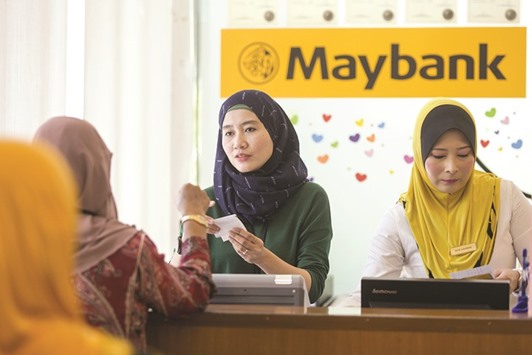Malaysia’s biggest Shariah bank aims to double its assets by 2020 as part of a five-year plan to strengthen its presence in the region and as it seeks to expand in Indonesia.
Maybank Islamic Bank Bhd, a unit of the country’s biggest lender, is confident of increasing its assets and loan books because there’s still growth potential in the business, chief executive officer Rafique Merican said in an interview in Kuala Lumpur on Friday.
Assets climbed 16% to 181.8bn ringgit ($42bn) as of end-2016, outpacing the Shariah industry’s growth of 8.3%, Rafique said. In the past five years, Maybank Islamic’s assets increased at a compounded annual growth rate of 19% versus the industry’s average 13%. Total banking assets including Islamic rose at average 7.5% a year over the same period, according to information published on the central bank’s website.
“Based on what we have seen over the last five years, there is no reason why we shouldn’t be able to continue this growth momentum,” he said. “Islamic is still outgrowing conventional by a ratio of at least two to one.”
Rafique said based on forecasts available, Islamic assets in Malaysia will more than double to $300bn by 2020 from 2015, while financing that complies with the religion’s ban on interest will increase an average of 18% a year to $223bn over the same period.
Malaysia, which pioneered Shariah finance in the 1980s, aims to have 40% of its banking assets complying with the religion by 2020, from 28%, or a record 742bn ringgit at the end of last year. A global Islamic population that’s expanding faster than non-Muslims is driving growth in Shariah-compliant finance, with Ernst & Young predicting the industry’s worldwide assets will double to $3.4tn by 2018 from 2013.
Over the next five years, Maybank Islamic strives to be a global leader in terms of financials and to have a presence when it comes to development of new products, Rafique said. Indonesia, home to the largest Muslim population, has strong growth potential given the government’s plans to raise Islamic assets in the banking industry to 15% by 2023 from 5% in 2015, he said.
Rising Asean trade also offers opportunities for further growth in Islamic financing, Rafique said.
“The size that we have now and the footprint that we have across the region, I think it makes sense for us to start thinking about how else we can contribute to the industry and create and an environment where Shariah banking can really grow,” he said. “There’s a premium to be listed as a Shariah-compliant counter as it will have a bigger pool of investors.”

An employee serves a customer at the information counter inside a combined Malayan Banking Bhd (Maybank) and Maybank Islamic Bhd bank branch in Kuala Lumpur (file). Malaysia, which pioneered Shariah finance in the 1980s, aims to have 40% of its banking assets complying with the religion by 2020, from 28%, or a record 742bn ringgit at the end of 2016.
